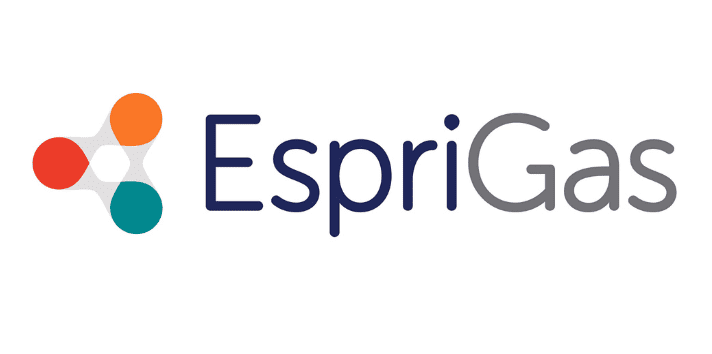Welding
Safe Welding with Industrial Gas Safety Monitoring
What is CO2 Welding?
Metal arc welding is one common form of the welding process, which uses a consumable electrode that is fed into the arc at a constant speed. This arc, with a high current density, can basically alter any length being corrected by naturally occurring changes in the burn-off rate.
What gas analyzer is used for CO2?
In order to test the CO2, you will need to use a CO2 Welding Gas Analyzer that can indicate the correct CO2 concentrations of welding gas mixtures during typical weld operations. In addition, it is important that the gas analyzer used complies with industry-leading AWS standards; the CM-1650 will meet this criterion.
Weld Purge Monitors
Looking for welding purge monitor solutions? CO2Meter provides weld purge monitors to continuously analyze gas levels during the welding process and ensure no leaks, occur. This insures perfect, oxide-free, zero-color welds.
-
Handheld
Portable CO2 Welding Gas Analyzer
The CM-1650 Portable CO2 Welding Gas Analyzer is designed to provide advanced analysis of active welding gas blends that contain 0-100%...
$2,399.00 USD$2,399.00 USD$2,399.00 USD -
The CM-1652 Carbon Dioxide and Oxygen Welding Gas Analyzer provides customers with advanced analysis of active welding gas blends that contain...
$3,499.00 USD$3,499.00 USD$3,499.00 USD -
CO2 Monitor
CO2 Industrial Gas Detector
The CM-900: CO2 Industrial Fixed Gas Detector is a gas safety solution for industries that need to measure up to...
$1,599.00 USD$1,599.00 USD$1,599.00 USD -
CO2 Monitor
Industrial Stainless Steel CO2 Gas Detector
The CM-900-S: CO2 Industrial Fixed Gas Detector is an industrial gas safety solution for industries working near hazardous carbon dioxide...
$2,099.00 USD$2,099.00 USD$2,099.00 USD -
CO2 Monitor
O2 Industrial Gas Detector
The CM-902 O2 Industrial Gas Detector is designed to protect individuals working near hazardous gases like nitrogen, argon, chlorine, propane, nitrous oxide, or...
$1,599.00 USD $2,199.00 USD$1,599.00 USD$1,599.00 USD $2,199.00 USD -
Handheld
TecWeld Oxygen Analyzer
The TecWeld 0-2000ppm Oxygen Analyzer is designed to provide accurate gas measurements of oxygen content in welding and industrial applications. The...
$3,499.00 USD$3,499.00 USD$3,499.00 USD -
The TecPen Oxygen and Carbon Dioxide Weld Purge Monitor is designed to provide accurate measurements down to 0% oxygen and up to...
$4,899.00 USD$4,899.00 USD$4,899.00 USD -
fixed/wall mount
Oxygen Combustible Fixed Gas Detector (0-25%)
The Oxygen Combustible Fixed Gas Detector (PX2-1-2-E1195-A5-01) is designed for continuous monitoring of toxic gases to prevent leaks in the range...
$2,079.00 USD$2,079.00 USD$2,079.00 USD -
fixed/wall mount
Nitrogen Dioxide NO2 Combustible Fixed Gas Detector (0-100ppm)
The Nitrogen Dioxide NO2 Combustible Fixed Gas Detector (PX2-1-2-E1130-E-01) is designed for continuous monitoring of nitrogen dioxide gases to prevent...
$1,629.00 USD$1,629.00 USD$1,629.00 USD -
CO2 Safety Alarm
Remote Carbon Dioxide CO2 Storage Safety 3 Alarm
The Remote Carbon Dioxide (CO2) Storage Safety Alarm is designed to protect individuals near stored carbon dioxide. This fixed gas safety monitor measures...
4.77 / 5.0
(26) ( 26 )
$695.00 USD$695.00 USD$695.00 USD -
fixed/wall mount
Oxygen Deficiency Depletion Safety Alarm
The Oxygen Deficiency Depletion Safety Alarm is a 0-23% room oxygen monitor designed to protect staff from oxygen depletion. This...
$1,499.00 USD $1,599.00 USD$1,499.00 USD$1,499.00 USD $1,599.00 USD -
fixed/wall mount
Oxygen Enrichment Safety Alarm
The Oxygen (O2) Enrichment Safety Alarm is an ambient oxygen enrichment monitor which is simple to use and maintain. The...
$1,599.00 USD$1,599.00 USD$1,599.00 USD -
Handheld
Portable 5% CO2 Safety Detector
The PRO-10: Portable 5% CO2 Safety Detector is designed for employees who work in enclosed areas where carbon dioxide buildup may...
5.0 / 5.0
(3) ( 3 )
$399.00 USD$399.00 USD$399.00 USD -
CO2 Monitor
Industrial Stainless Steel O2 Gas Detector
The CM-902-S O2 Industrial Gas Detector is designed to protect individuals working near hazardous gases like nitrogen, argon, and helium in...
$2,099.00 USD $2,699.00 USD$2,099.00 USD$2,099.00 USD $2,699.00 USD
Don't Take Our Word for it, Take Theirs

Matthew Weintraub
Plant Manager
"Your solutions meet the code requirements and because of you our facility is much safer."

Angela Ihrig
Supply Chain Manager
"CO2Meter has helped protect 150+ of our customers sites and ensure they are compliant and safe."

Michael Hudkins, CFPS
Fire Plans Examiner/Fire Inspector II
"I would recommend CO2Meter gas training to anyone, it inspired us to be keenly aware of what to inspect."

Keith Isoldi
Chief Operating Officer
"I have always worked with CO2Meter because they are the industry leader."

Kelly Kissock
Faculty Director
"Easy to install, Our CO2 tank gassed off and the meter near it worked perfectly!"
Stay Informed with Our Latest Updates
Subscribe to our newsletter for the latest news, product updates, and industry insights.
CO2Meter is working with our global supply chain to minimize disruptions
Due to imposed tariffs, Quotes will be honored for 24 hours and may require a revised PO
CO2Meter is working with our global supply chain to minimize disruptions
Due to imposed tariffs, Quotes will be honored for 24 hours and may require a revised PO
CO2Meter is working with our global supply chain to minimize disruptions
Due to imposed tariffs, Quotes will be honored for 24 hours and may require a revised PO
CO2Meter is working with our global supply chain to minimize disruptions
Due to imposed tariffs, Quotes will be honored for 24 hours and may require a revised PO
CO2Meter is working with our global supply chain to minimize disruptions
Due to imposed tariffs, Quotes will be honored for 24 hours and may require a revised PO
CO2Meter is working with our global supply chain to minimize disruptions
Due to imposed tariffs, Quotes will be honored for 24 hours and may require a revised PO
CO2Meter is working with our global supply chain to minimize disruptions
Due to imposed tariffs, Quotes will be honored for 24 hours and may require a revised PO
CO2Meter is working with our global supply chain to minimize disruptions
Due to imposed tariffs, Quotes will be honored for 24 hours and may require a revised PO
CO2Meter is working with our global supply chain to minimize disruptions
Due to imposed tariffs, Quotes will be honored for 24 hours and may require a revised PO
CO2Meter is working with our global supply chain to minimize disruptions
Due to imposed tariffs, Quotes will be honored for 24 hours and may require a revised PO
CO2Meter is working with our global supply chain to minimize disruptions
Due to imposed tariffs, Quotes will be honored for 24 hours and may require a revised PO
CO2Meter is working with our global supply chain to minimize disruptions
Due to imposed tariffs, Quotes will be honored for 24 hours and may require a revised PO
CO2Meter is working with our global supply chain to minimize disruptions
Due to imposed tariffs, Quotes will be honored for 24 hours and may require a revised PO
CO2Meter is working with our global supply chain to minimize disruptions
Due to imposed tariffs, Quotes will be honored for 24 hours and may require a revised PO
CO2Meter is working with our global supply chain to minimize disruptions
Due to imposed tariffs, Quotes will be honored for 24 hours and may require a revised PO
CO2Meter is working with our global supply chain to minimize disruptions
Due to imposed tariffs, Quotes will be honored for 24 hours and may require a revised PO
CO2Meter is working with our global supply chain to minimize disruptions
Due to imposed tariffs, Quotes will be honored for 24 hours and may require a revised PO
CO2Meter is working with our global supply chain to minimize disruptions
Due to imposed tariffs, Quotes will be honored for 24 hours and may require a revised PO
CO2Meter is working with our global supply chain to minimize disruptions
Due to imposed tariffs, Quotes will be honored for 24 hours and may require a revised PO
CO2Meter is working with our global supply chain to minimize disruptions
Due to imposed tariffs, Quotes will be honored for 24 hours and may require a revised PO
CO2Meter is working with our global supply chain to minimize disruptions
Due to imposed tariffs, Quotes will be honored for 24 hours and may require a revised PO
CO2Meter is working with our global supply chain to minimize disruptions
Due to imposed tariffs, Quotes will be honored for 24 hours and may require a revised PO
CO2Meter is working with our global supply chain to minimize disruptions
Due to imposed tariffs, Quotes will be honored for 24 hours and may require a revised PO
CO2Meter is working with our global supply chain to minimize disruptions
Due to imposed tariffs, Quotes will be honored for 24 hours and may require a revised PO
CO2Meter is working with our global supply chain to minimize disruptions
Due to imposed tariffs, Quotes will be honored for 24 hours and may require a revised PO






















